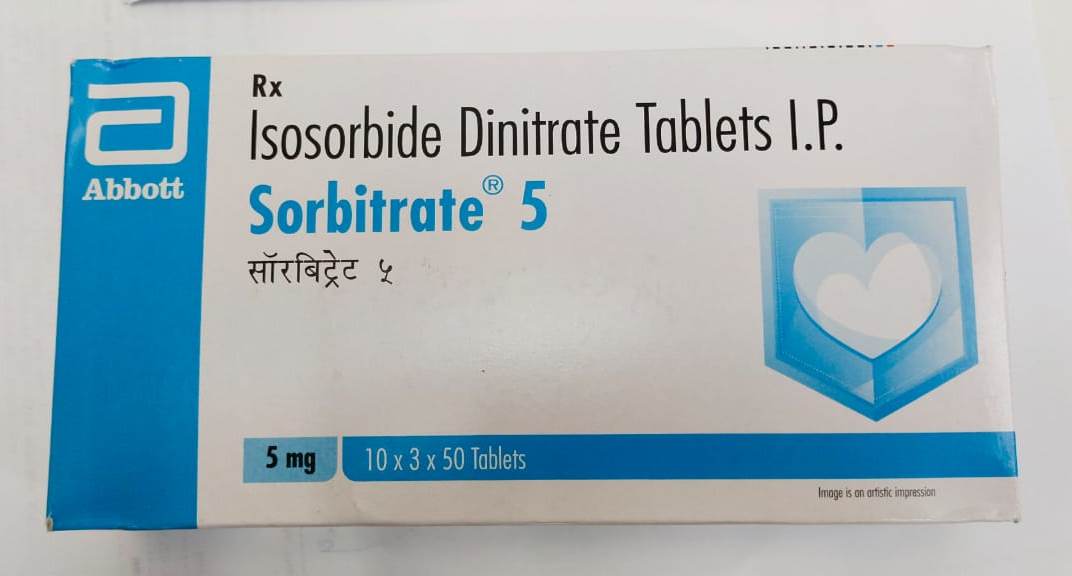Are you or a loved one struggling with the discomfort of angina? Sorbitrate may be the solution you need. Sorbitrate is a medication that provides heart relief and effective treatment for angina, a common condition experienced by millions of people worldwide.
By easing angina discomfort and improving cardiovascular health, Sorbitrate can significantly enhance your quality of life. In this section, we will explore the essentials of Sorbitrate, its uses, dosage, mechanism of action, drug interactions, side effects, indications, and contraindications.
Read on to discover how Sorbitrate can help alleviate angina symptoms and improve your heart health.
Sorbitrate Uses and Dosage
Sorbitrate is a medication prescribed primarily to treat angina, a condition characterized by chest pain caused by inadequate blood supply to the heart. Sorbitrate works by relaxing blood vessels and increasing circulation to provide immediate relief to angina symptoms in sufferers.
Aside from angina treatment, Sorbitrate is also used to manage certain heart conditions such as heart failure, pulmonary edema, and hypertension. It may also be prescribed to individuals who have undergone heart surgery or have other cardiovascular concerns.
Sorbitrate dosage will depend upon an individual’s medical condition, age and history; to reduce potential risks or side effects from Sorbitrate use it is imperative that they follow instructions given by their healthcare provider; typically for adults suffering angina an initial starting dose ranges from 5mg-10mg sublingually taken every 3-6 hours to three doses daily may be effective; although depending on individual responses this amount may change accordingly.
Sorbitrate should never be combined with medicines used to treat erectile dysfunction such as PDE5 inhibitors; ensure your healthcare provider knows about all prescription and over-the-counter medication you take as possible interactions could arise.
Sorbitrate: Mechanism of Action and Drug Interactions
Understanding Sorbitrate’s mechanism of action is vital to understanding its efficacy against angina symptoms. Sorbitrate works by releasing nitric oxide into the body, leading to relaxation of veins and arteries which allows your heart to pump more efficiently than before.
It is essential to note that Sorbitrate may have drug interactions with other medications. Certain drugs can interact with Sorbitrate, causing adverse effects or reducing its efficacy. Hence, it is critical to consult your doctor before you start taking Sorbitrate if you are already on other medications.
Make sure to inform your physician of all medications taken, from prescription and over-the-counter drugs, dietary supplements and vitamins to ensure any possible drug interactions are avoided.
Sorbitrate: Side Effects, Indications, and Contraindications
Sorbitrate can be an effective treatment option for angina; however, its side effects include headaches, dizziness, flushing and nausea; in rare instances it could even result in low blood pressure drops which lead to fainting episodes. Should any adverse reactions persist or worsen quickly thereafter it is wise to consult medical advice immediately.
Sorbitrate may not be suitable for everyone; those allergic to nitrates or advised against sexual intimacy for health reasons should seek advice before beginning taking this drug. Furthermore, those suffering low blood pressure, severe anemia or glaucoma should consult their healthcare practitioner prior to using Sorbitrate.
Before going under surgery, it is vitally important that your healthcare provider be informed about any medications or supplements such as Sorbitrate that you take. Certain blood thinners, erectile dysfunction drugs and beta blockers could interact negatively with Sorbitrate; thus it’s necessary for them to know any existing medical conditions or medication they might currently take in order to ensure an efficient experience and recovery period.
But Sorbitrate cannot be taken for granted as an effective medication to manage angina symptoms and enhance cardiovascular health; by increasing blood flow to the heart and controlling angina-related symptoms, Sorbitrate may significantly lower risk of cardiovascular attacks as well as diseases like arteriosclerosis.
If any of the side effects listed above or if you are concerned about taking Sorbitrate, seek medical advice right away. With proper guidance and supervision from your healthcare team, this medication will allow you to achieve its maximum effects for a healthier, happier lifestyle.
FAQ
What is Sorbitrate?
Sorbitrate is a medication used for heart relief and the treatment of angina. It contains the active ingredient isosorbide dinitrate, which helps to relax and widen blood vessels, improving blood flow and reducing the workload on the heart.
What are the uses of Sorbitrate?
Sorbitrate is commonly prescribed to ease and prevent angina attacks, characterized by chest pain or discomfort caused by decreased blood flow to the heart. Additionally, certain heart conditions may require Sorbitrate use in order to improve exercise capacity.
How should Sorbitrate be taken?
The dosage and frequency of Sorbitrate will vary depending on the individual and the specific condition being treated. It is typically taken orally as tablets or capsules and should be swallowed whole with water. It is important to follow the instructions provided by your healthcare provider or the medication’s packaging.
How does Sorbitrate work?
Sorbitrate works by releasing nitric oxide, which relaxes and widens blood vessels. This helps to improve blood flow and oxygen supply to the heart, reducing the frequency and severity of angina attacks.
What are the potential side effects of Sorbitrate?
Like any medication, Sorbitrate can cause side effects. Common side effects may include headaches, dizziness, flushing, and low blood pressure. It is important to discuss any persistent or troublesome side effects with your doctor.
What are the indications for Sorbitrate?
Sorbitrate is indicated for the relief and prevention of angina attacks, as well as the improvement of exercise capacity in certain heart conditions. Your doctor will determine if Sorbitrate is suitable for your specific needs.
Are there any contraindications for Sorbitrate?
Yes, Sorbitrate is contraindicated in individuals with a known hypersensitivity to isosorbide dinitrate or other nitrate medications. It should also be used with caution in individuals with low blood pressure or those using medications for erectile dysfunction, as it can cause a dangerous drop in blood pressure.
Can Sorbitrate interact with other medications?
Yes, Sorbitrate can interact with certain medications, including other nitrate medications, blood pressure-lowering medications, and medications for erectile dysfunction. It is important to inform your doctor about all medications you are taking to avoid any potential interactions.






